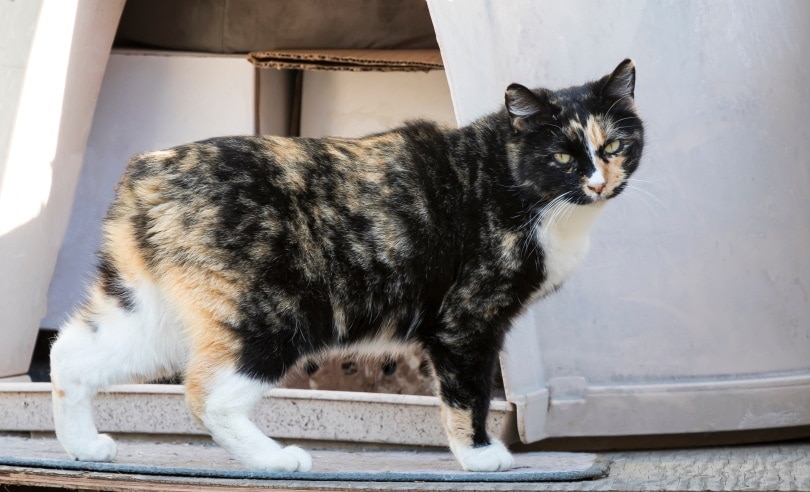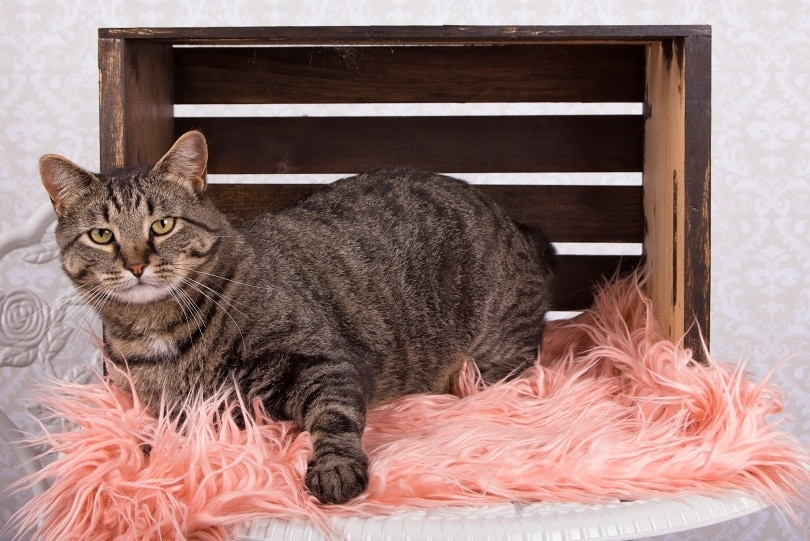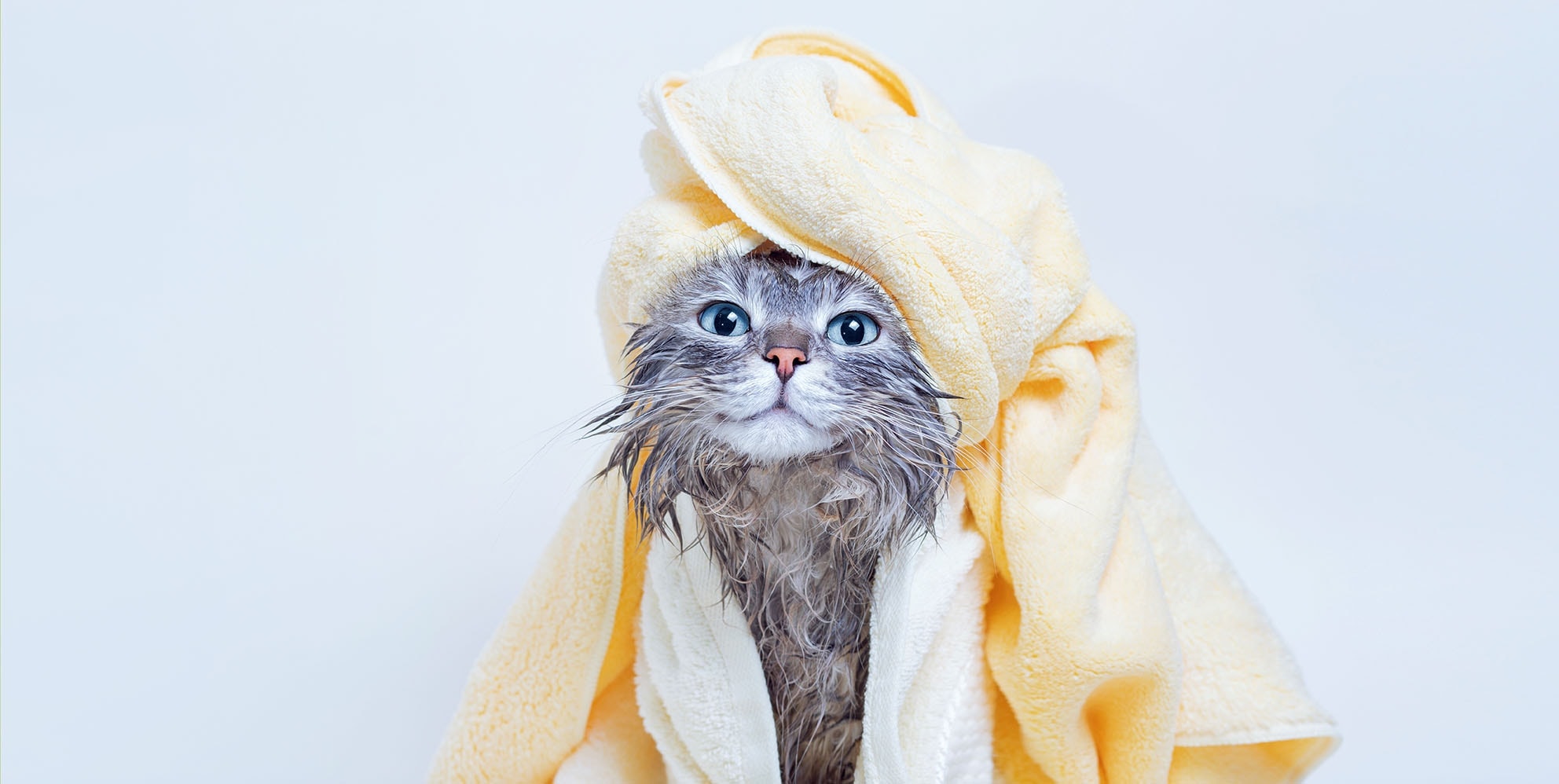10 Common Manx Cat Health Problems: Vet Approved Facts
Updated on

Manx cats are a popular breed, easily identifiable from their cute, bobbed tails. These cats are prone to a variety of issues, though, and irresponsible breeding has caused many issues to become ingrained in the breed. It’s important to ensure you only purchase Manx kittens from reputable breeders who have performed all recommended health testing on their breeding cats and aren’t breeding cats with genetic conditions and health problems in their breeding lines.
Some of the conditions that Manx are predisposed to are more serious than others. Some are preventable with a healthy diet and routine exercise, while others are not avoidable if your cat is genetically predisposed to them. Understanding these diseases will help you provide a better, healthier life for your Manx.
The 10 Manx Cat Health Problems
1. Manx Syndrome
| Type of condition | Neurological, musculoskeletal |
| Treatable? | No |
| Severity | Variable |
Manx syndrome is a disorder in which the end part of the spine, the sacrum, doesn’t form properly. This is a common disorder in breeds lacking tails or having shortened tails, like the Manx. It can lead to severe problems, like an inability to control the bladder and bowels. Some cats with Manx syndrome may require manual stimulation to use the bathroom.
They may also experience an abnormal, hopping gait. In severe cases, quality of life may be significantly impacted. There is no cure or treatment for this condition, and management is done on a case-by-case basis.
2. Heritable Deafness
| Type of condition | Sensory |
| Treatable? | No |
| Severity | 3/5 |
Deafness has shown some prevalence in Manx cats. The severity of this condition can vary, but deafness is not a significant problem for many cats. While the condition is not treatable, deaf cats can lead perfectly normal lives. They can be taught visual commands and live happy lives. However, some considerations may need to be taken within the home to keep the cat safe since they will not be able to hear dangerous situations. You must keep deaf cats indoors for their safety.
Some cases of deafness are caused by treatable conditions, like ear infections and polyps. However, congenital and heritable deafness currently have no known treatments in cats.
3. Obesity
| Type of condition | Dietary |
| Treatable? | Yes |
| Severity | Variable |
Obesity can be a serious problem for cats since it can lead to conditions like joint pain and arthritis, diabetes, and heart disease. It can also increase the risk of injury to your cat, as well as make it more difficult for them to get out of dangerous situations quickly. The good news is that most cases of diabetes are fully preventable, but it’s important to talk to your cat’s vet about how much you should be feeding them every day.
Routine exercise and play can help prevent obesity, along with a healthy diet in appropriate portions. Sometimes, obesity can be caused by other medical conditions, so it’s important to have your cat checked over by a vet if they begin gaining weight. Don’t attempt to put your cat on a diet without consulting a vet first.

4. Diabetes
| Type of condition | Endocrine |
| Treatable? | Manageable with appropriate care |
| Severity | 5/5 |
Diabetes is a serious medical condition that can be tricky to manage, especially in cats that don’t like to be handled. This disease is often caused by an improper diet and obesity, but it can also be caused by serious medical conditions like Acromegaly.
Cats with diabetes will often exhibit symptoms like excessive thirst and urination, and they may show symptoms like lethargy, temperament changes, weight loss, and anorexia or excessive hunger. If your cat begins exhibiting any of these symptoms, it’s necessary to get a vet visit as soon as possible. Untreated diabetes can lead to severe problems and even death. Diabetes is treatable but is extremely difficult to put into remission.
5. Dental Disease
| Type of condition | Dental |
| Treatable? | Partially |
| Severity | Variable |
Dental disease is an issue that many cat breeds are prone to developing. The severity is highly variable. Some cases are fully treatable with routine dental care, while other cases may continue to deteriorate even with care.
Routine dental cleanings performed by your vet are a necessary part of the treatment of dental disease. Some cats may need teeth extracted if their gums become inflamed, infected, or withdrawn. Untreated dental disease can lead to serious systemic medical conditions, like kidney disease, heart disease and infections, pain, and sepsis. Home teeth brushing and dental treats can help manage dental disease at home, but veterinary intervention is necessary to keep your cat’s teeth and gums as healthy as possible.
6. Feline Lower Urinary Tract Disease
| Type of condition | Urinary |
| Treatable? | Yes |
| Severity | Variable |
FLUTD is a serious condition that more commonly occurs in male cats than in female cats. In male cats, the buildup of crystals in the urinary tract can lead to urinary tract blockages, which can be deadly and require emergency intervention to repair.
Cats with FLUTD often require permanent specialty diets to manage their condition, as well as occasional UTI treatments and other veterinary interventions. In serious cases, some cats may require surgical interventions. Male cats may even require a perineal urethrostomy, which is a surgical procedure that reroutes their urine from the bladder through a newly formed opening, bypassing the narrow part of the urinary tract where the urinary tract enters the penis.
7. Constipation
| Type of condition | Gastrointestinal |
| Treatable? | Yes |
| Severity | 2/5 |
Constipation isn’t a medical condition on its own, but it can be a symptom of a problem, like an underlying medical condition or dietary issues. Manx cats are prone to constipation, so it’s important to ensure your cat is on a proper diet and is receiving plenty of exercise. Activity will help keep the GI system functioning normally, while a proper diet will be more digestible for your cat.
Constipation can be uncomfortable for your cat, and severe constipation can even lead to damage to the intestinal tract, as well as nausea, vomiting, anorexia, and intestinal obstructions. If your cat seems to be struggling to poop or is passing hard poop, talk to your vet about treatment options.

8. Megacolon
| Type of condition | Gastrointestinal, neurological |
| Treatable? | Partially |
| Severity | 4.5/5 |
Megacolon is a medical condition that entails an enlargement of the colon or the lower portion of the large intestine. When the colon becomes enlarged, it can lead to a severe form of constipation known as impaction. It can also lead to significant discomfort for your cat and impact their appetite.
There are a few things that can cause megacolon, but the most common cause is damage to the nerves leading to the colon. This limits your cat’s ability to feel when they need to poop, and it makes it very difficult for them to properly pass stool. Although it may not sound like a big deal, megacolon can be deadly if left untreated. It is not a curable condition, but it can be managed with veterinary-guided care. Severe megacolon cases may be improved with surgical intervention.
9. Corneal Dystrophy
| Type of condition | Sensory |
| Treatable? | No |
| Severity | 3.5/5 |
Corneal dystrophy is a condition that impacts the eyes. This condition causes small crystals to form within the cornea, which is the clear membrane that covers the eyes. When the cornea becomes obstructed, it impacts vision. Severe corneal dystrophy can lead to blindness, but this is uncommon. Most cases lead to minor visual impairment.
This condition is not treatable. Sometimes, surgery can be performed on the cornea to remove the crystals and improve visual acuity. However, this surgery is often not curative, and the crystals are likely to reoccur within the corneal tissues. Most cats with this condition can live normal lives.
10. Mast Cell Cancer
| Type of condition: | Dermal and visceral forms with metastatic potential |
| Treatable? | Sometimes |
| Severity | Variable |
Mast cell cancer is a type of cancer that often begins within the skin. This cancer comes in variable severity, like most cancers. However, it is known to be an exceptionally aggressive cancer that is often difficult to get under control. These tumors are known to quickly become irritated when bothered, and even surgery to remove mast cell tumors can lead to metastatic activity.
It’s important to have any growths on your cat examined by your vet to rule out cancers. In some cases, a surgical removal or biopsy may be necessary. This type of cancer is easily overlooked until it has already begun to metastasize. It can cause painful, raw tumors on the skin, as well as leading to metastases throughout the body. It is treatable in some situations, but severe cases may not be treatable.
Conclusion
Manx cats make fantastic pets but finding a reputable breeder who has worked to better the breed and prevent known medical conditions is essential to ensuring you have a healthy cat. It’s also essential to ensure future Manx cats are healthy and free of disease. Responsible breeding practices are the only way to decrease the likelihood of these conditions continuing in the breed in the future.
Featured Image Credit: rokopix, Shutterstock












